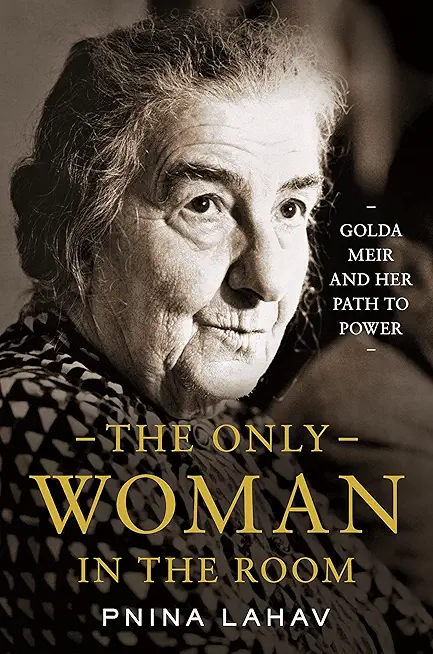
description
ly woman to become prime minister of Israel In this authoritative and empathetic biography, Pnina Lahav reexamines the life of Golda Meir (1898-1978) through a feminist lens, focusing on her recurring role as a woman standing alone among men. The Only Woman in the Room is the first book to contend with Meir's full identity as a woman, Jew, Zionist leader, and one of the founders of Israel, providing a richer portrait of her persona and legacy. Meir, Lahav shows, deftly deflected misogyny as she traveled the path to becoming Israel's fourth, and only female, prime minister, from 1969 to 1974. Lahav revisits the youthful encounters that forged Meir's passion for socialist Zionism and reassesses her decision to separate from her husband and leave her children in the care of others. Enduring humiliation and derision from her colleagues, Meir nevertheless led in establishing Israel as a welfare state where social security, workers' rights, and maternity leave became law. Lahav looks at the challenges that beset Meir's premiership, particularly the disastrous Yom Kippur War, which led to her resignation and withdrawal from politics, as well as Meir's bitter duel with feminist and civil rights leader Shulamit Aloni, Meir's complex relationship with the Israeli and American feminist movements, and the politics that led her to distance herself from feminism altogether. Exploring the tensions between Meir's personal and political identities, The Only Woman in the Room provides a groundbreaking new account of Meir's life while also illuminating the difficulties all women face as they try to ascend in male-dominated fields.
member goods
No member items were found under this heading.
notems store

Deconstructing the Administrative State
by Tuttle, Emmett McGroarty Jane Robbins
Hardcover /Hardcover$22.49
Return Policy
All sales are final
Shipping
No special shipping considerations available.
Shipping fees determined at checkout.






